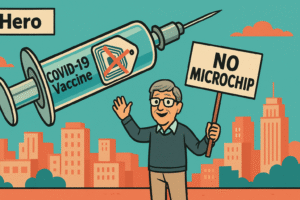Facebook Lies: Exposing Privacy Deceptions, Algorithmic Secrets & Major Scandals
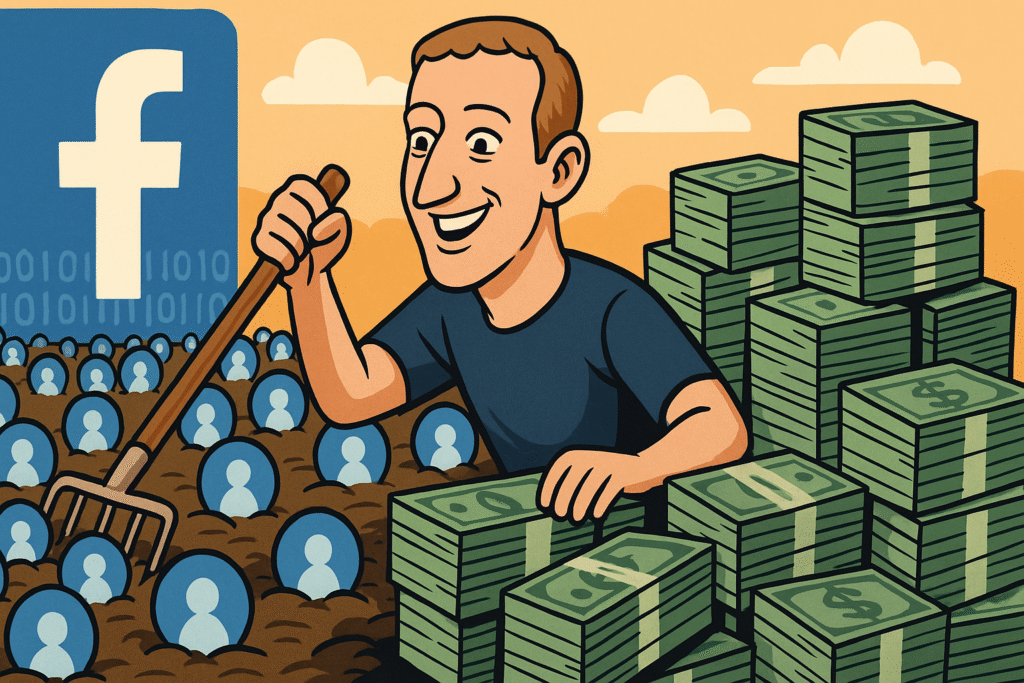
Facebook lies have become a focal point of public scrutiny as the platform—now rebranded as Meta—commands the attention of nearly 3 billion users worldwide yet persistently faces accusations of deception and obfuscation. In 2018 alone, revelations suggested that up to 87 million users had their personal data harvested without consent—a number surpassing the population of nearly every country on Earth. Such Facebook lies and breaches of trust not only erode user confidence but also raise urgent questions about privacy, democracy, and corporate accountability.
In this context, “lies” encompass a spectrum of practices: from the deliberate spread of misinformation to the opacity of recommendation algorithms, and from misleading privacy assurances to the suppression of inconvenient research findings. Each represents a facet of how Facebook has, critics argue, prioritized growth and engagement over transparency and user welfare. Understanding these deceptions matters because they shape how billions consume news, interact socially, and even vote—ultimately influencing the fabric of societies across the globe.
Table of Contents
Historical Context & Background

Founding Ethos: “Move Fast and Break Things”
When Mark Zuckerberg launched “Thefacebook” in 2004, his mantra was famously to “move fast and break things,” emphasizing rapid innovation over cautionen.wikipedia.org. Early mission statements proclaimed Facebook’s purpose as giving people “the power to share and make the world more open and connected”theverge.com. This idealistic vision framed Facebook as a democratizing force, enabling free expression and community building.
Evolution of Policies and Priorities
Over time, Facebook’s policies evolved under mounting pressure. In 2014 it curtailed third-party data access via its API, yet simultaneously entered lucrative partnerships with data brokers—often without explicit user consenten.wikipedia.org. By mid-2017, Zuckerberg had revised the mission to “give people the power to build community and bring the world closer together,” aiming to shift the focus from broadcasting to deeper connectionmoney.cnn.com. However, critics argue this was as much a rebranding exercise as a policy realignment, given subsequent events.
Major Deceptions & Key Developments
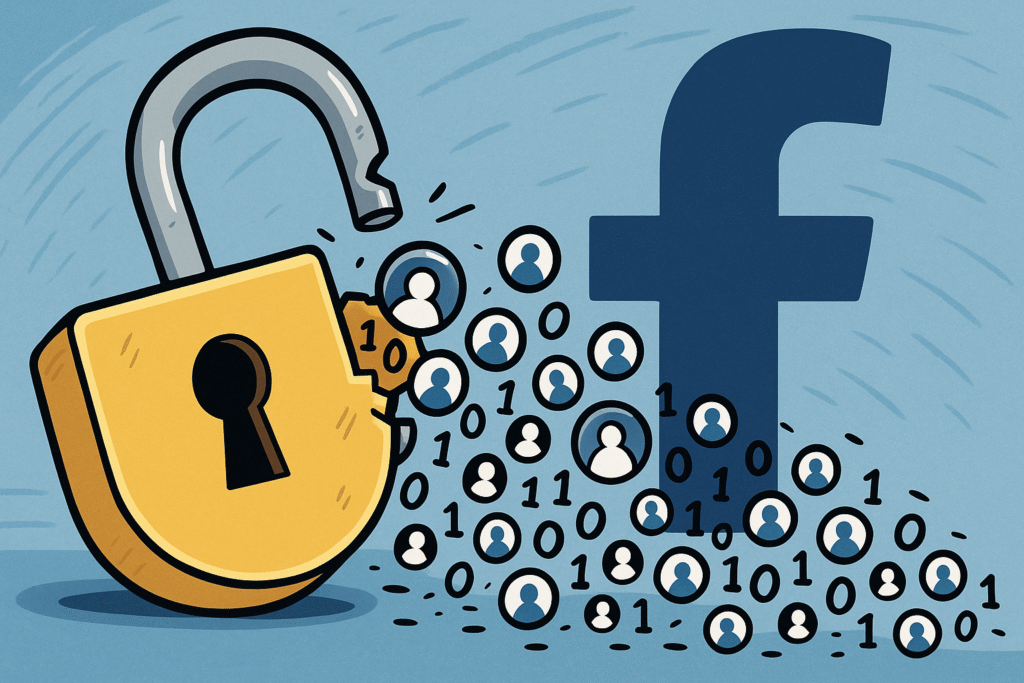
Cambridge Analytica & Data Harvesting (2018)
- In March 2018, whistleblower Christopher Wylie revealed that Cambridge Analytica had accessed the profiles of up to 87 million Facebook users via a personality-quiz app, exploiting overly permissive data-sharing rules.
- Facebook initially denied knowledge, later acknowledging it had been “lied to” by the app’s developer, Dr. Aleksandr Kogan, before conceding that oversight failures allowed widespread misuse.
- The scandal erased over $100 billion from Facebook’s market valuation in days and prompted Zuckerberg’s high-profile U.S. Congressional testimony in April 2018.
Data Privacy Violations & Breaches
- Despite repeated assurances of user control, Facebook endured multiple data privacy violations, exposing millions of records. In September 2019, an unsecured server leaked access tokens for 50 million accounts via the “View As” feature, forcing an emergency credential resettechcrunch.comaxios.com.
- Later that month, TechCrunch confirmed that 419 million phone numbers and associated user IDs were exposed on an unprotected database—some records even included names, genders, and locationstechcrunch.comaxios.com.
Digital Misinformation Campaigns During Elections
- In the 2016 U.S. election and the UK’s Brexit referendum, Facebook’s microtargeting tools were exploited to run targeted digital misinformation campaigns, pushing sensationalized and often false messages to swing-state votersscirp.orgmisinforeview.hks.harvard.edu.
- Craig Silverman’s BuzzFeed News analysis found that top fake-election news stories outperformed real-news counterparts in engagement across millions of user interactionsscirp.orgmisinforeview.hks.harvard.edu.
Algorithmic Opacity
- Facebook’s News Feed algorithm—touted as optimizing “meaningful social interactions”—was shown to favor incendiary content, amplifying divisive and false narratives to boost engagementaxios.com.
- Internal research leaked by whistleblower Frances Haugen revealed that Facebook’s own scientists warned executives about the platform’s role in increasing political polarization and youth mental-health issues, yet these findings were downplayed in public reportsaxios.com.
Expert Perspectives & Case Studies

Whistleblower Insights
- Frances Haugen: A former Facebook product manager, Haugen disclosed thousands of internal documents to Congress in October 2021, testifying that Facebook repeatedly chose “growth over safety.” She highlighted decisions to prioritize engagement metrics even when they exacerbated hate speech and misinformationnewyorker.com.
Academic Analyses
- Evan Osnos (The New Yorker): Chronicled how Facebook’s “hacker culture” shifted toward secrecy and defensive public-relations tactics, including the hiring of firms like Definers Public Affairs to discredit criticsnewyorker.com.
- “An Ugly Truth” by Frenkel & Kang: Revealed internal debates showing executives knew they were creating “an attention-economy monster” yet continued to favor features that extended user time on sitenewyorker.com.
Case Study: Impact on Voter Behavior
A study by the University of Oxford’s Computational Propaganda Project found that targeted political ads on Facebook were deployed more heavily in swing states during the 2016 U.S. election, correlating with shifts in voter turnout patterns. While causality remains contested, the ability to deliver tailored political messaging at scale marked a new era in election influenceinvestopedia.com.
Criticisms, Counterarguments & Regulatory Response
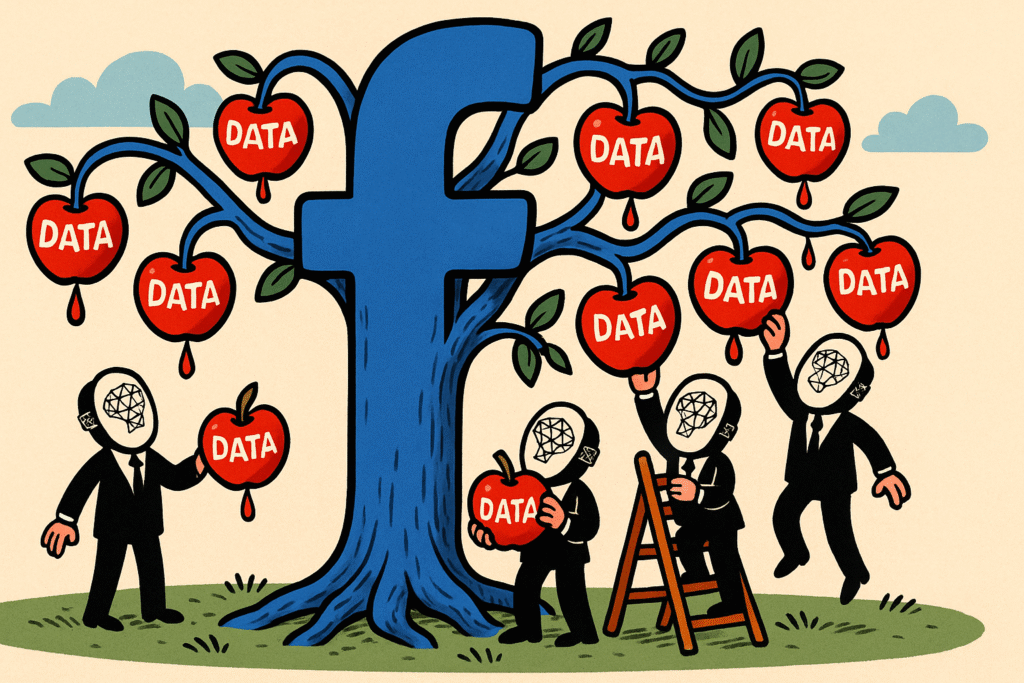
- Facebook’s Defenses
- Official statements emphasize that Facebook has “overhauled” privacy settings, introduced the “Clear History” tool, and launched the Oversight Board to improve content-moderation transparency.
- Industry allies argue that algorithmic personalization—while imperfect—is essential to the modern internet, warning that heavy-handed regulation could stifle innovation and fragment online ecosystems.
- Calls for Algorithmic Accountability
- Critics and regulators alike now demand algorithmic accountability, pushing for audits of News Feed ranking mechanisms to ensure they cannot be tuned solely for engagement at the expense of accuracy and public safety.
- Regulatory Actions & Fines
- United States
- 2019 FTC Settlement: A record $5 billion penalty and a 20-year privacy consent decree requiring independent audits of Facebook’s practicesftc.gov.
- United Kingdom & EU
- UK ICO Fine (2019): £500 000 for failing to protect user data in the Cambridge Analytica scandal.
- Digital Services Act (2024, EU): Imposes stricter transparency obligations on major platforms—mandating risk assessments and ad-disclosure rules (effective January 2025).
- Ongoing Investigations
- Antitrust Scrutiny: Multiple suits allege Facebook abuses its market dominance to stifle competition.
- GDPR Complaints: Cross-border probes challenge Meta’s consent mechanisms and profiling practices.
- United States
Long-Term Implications & Future Outlook
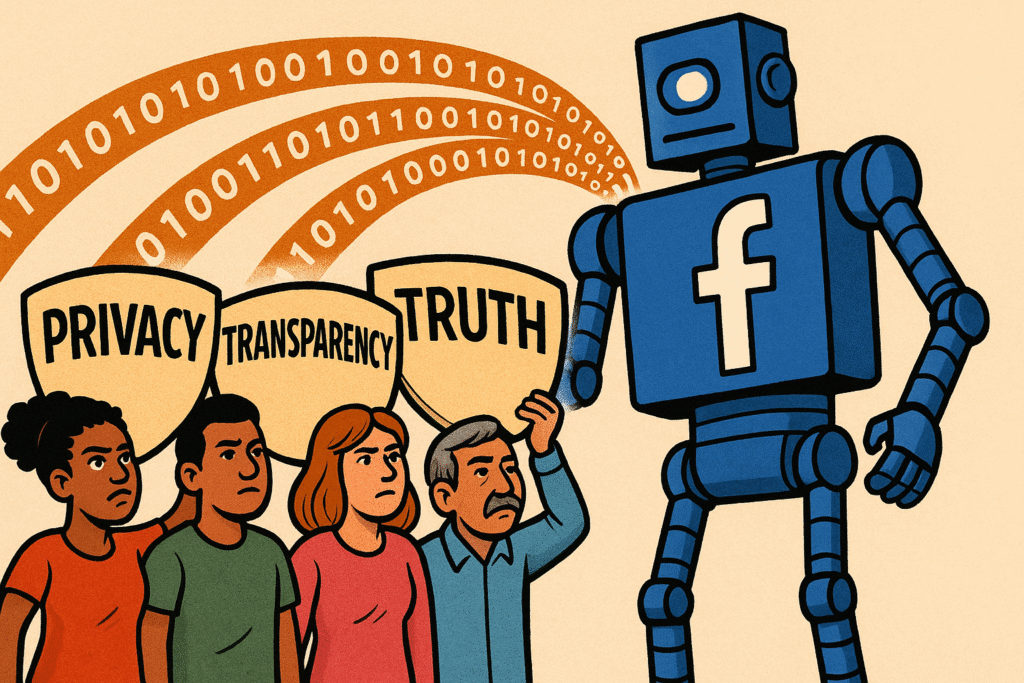
Regulatory bodies worldwide are ramping up scrutiny, but enforcement remains a patchwork. Proposed U.S. legislation, such as the American Privacy Rights Act, could mandate data-minimization principles, while the EU’s DSA sets a global benchmark for platform accountability. Meanwhile, public trust has hit historic lows: surveys show only 23% of U.S. adults trust Facebook to handle their personal data responsibly.
Experts predict that Facebook/Meta will need to pivot from pure engagement metrics to community-safety KPIs, potentially reshaping its recommendation engines and advertising models. Failure to do so risks further litigation, user attrition (as younger demographics migrate to more private platforms), and heightened regulatory penalties.
Conclusion
Facebook’s evolution from a pioneering social network to a global platform beset by privacy scandals and algorithmic manipulation highlights a persistent conflict between its growth-and-engagement goals and the need for genuine transparency and user protection. Despite hefty fines, new “transparency” features, and repeated revelations of Facebook lies, the underlying incentives driving Facebook’s business model remain largely unchanged.
What You Can Do:
- Review Your Privacy Settings: Go to Settings → Privacy to limit who sees your posts and disable off-Facebook activity.
- Control App Permissions: Under Apps and Websites, revoke access for any third-party apps you no longer use.
- Use Protective Tools: Install ad-blockers or tracker-blocking browser extensions to reduce data collection.
- Diversify Platforms: Consider engaging on privacy-focused alternatives like Mastodon or Signal.
Why It Matters:
Role of Public Pressure: Ongoing scrutiny from journalists, watchdogs, and users remains crucial to holding Facebook accountable and curbing future lies.
Collective Responsibility: By staying informed and demanding better practices, we can push platforms toward a model that truly respects our rights and well-being.
Regulatory Momentum: Laws such as the EU’s Digital Services Act and proposed U.S. privacy bills may strengthen accountability—but only if enforced.
FAQ: Facebook Lies
What constitutes Facebook lies?
“Lies” encompass misleading privacy promises (e.g., “only you can see this”), hidden changes to News Feed algorithms that prioritize engagement over accuracy, and suppression or downplaying of internal research warning about harms such as radicalization and mental-health impacts.
How did the Cambridge Analytica scandal reveal Facebook’s deception?
In 2018, it emerged that a third-party app had harvested data from up to 87 million users without explicit consent. Facebook initially claimed ignorance, later admitting oversight failures allowed the misuse—shattering trust in its data-protection assurances.
Can I still control my data on Facebook?
Facebook offers privacy tools such as “Clear History” and custom audience controls, but critics argue settings remain buried and defaults favor data sharing. To protect yourself, regularly review Settings → Privacy, limit ad targeting in Ad Preferences, and consider browser extensions like ad-blockers or tracking-protection plugins.
What future regulations might curb Facebook’s deceptive practices?
The EU’s Digital Services Act (effective January 2025) mandates transparency around algorithms and targeted ads. In the U.S., proposals like the American Privacy Rights Act would enforce data-minimization and explicit consent, though legislative timelines remain uncertain.
How do Facebook’s algorithms contribute to misinformation?
Facebook’s News Feed algorithm rewards content that sparks strong reactions—often sensational or false—because it drives engagement. Internal leaks show executives knew this amplified polarization but continued prioritizing time-on-site metrics.
What major fines has Facebook faced for its lies?
2019 FTC Settlement: $5 billion fine with a 20-year privacy consent decree.
UK ICO Fine (2019): £500 000 for Cambridge Analytica data misuse.
Ongoing GDPR Probes: Multiple cross-border complaints over insufficient consent and profiling.
How can users stay informed about Facebook’s evolving policies?
Follow reputable tech-policy outlets (e.g., Wired, The Verge), subscribe to updates from digital-rights NGOs (e.g., Electronic Frontier Foundation), and set up Google Alerts for terms like “Facebook privacy” or “Meta regulation” to receive real-time news and analysis.
What are some of the most notorious Facebook lies about user privacy?
Some of the biggest Facebook lies around privacy include assurances that “only you can see this” when in fact data was shared with third parties, claims that off-Facebook activity was fully controlled by users, and promises that new tools (like “Clear History”) would erase data when they merely limited its visibility.
How did Facebook lies contribute to the spread of misinformation during elections?
Facebook lies about algorithm neutrality masked how the News Feed was engineered to maximize engagement—even if it meant amplifying sensational or false content—enabling coordinated digital misinformation campaigns that targeted specific voter groups.
How can I protect myself from further Facebook lies?
Stay vigilant by routinely reviewing and tightening your privacy settings, using browser extensions to block trackers, limiting data shared with third-party apps, and following independent watchdogs that call out new Facebook lies as they emerge.
References – Facebook lies
- Wikipedia contributors. “Facebook–Cambridge Analytica data scandal.” Wikipedia, 2025. Facebook lies https://en.wikipedia.org/wiki/Facebook–Cambridge_Analytica_data_scandal en.wikipedia.org
- Hern, Alex. “Mark Zuckerberg’s letter annotated…” The Guardian, Feb. 17, 2017. https://www.theguardian.com/… en.wikipedia.org
- CNN. “Mark Zuckerberg explains why he just changed Facebook’s mission.” June 22, 2017. https://money.cnn.com/… money.cnn.com
- New York Times. “How Trump Consultants Exploited the Facebook Data…” March 17, 2018. https://www.nytimes.com/… en.wikipedia.org
- Wired. “Everything You Need to Know About Facebook and Cambridge Analytica.” March 17, 2018. https://www.wired.com/… wired.com
- Federal Trade Commission. “FTC Imposes $5 Billion Penalty…” July 24, 2019. https://www.ftc.gov/… en.wikipedia.org
- The New Yorker. “Facebook and the Age of Manipulation.” 2017 Facebook lies. https://www.newyorker.com/… newyorker.com
- The New Yorker. “Facebook’s Broken Vows.” Aug. 2, 2021. https://www.newyorker.com/… newyorker.com
- Vanity Fair. “’Men Are Scum’: Inside Facebook’s War on Hate Speech.” Feb. 2019. Facebook lies https://www.vanityfair.com/… vanityfair.com
- BBC News. “Facebook still being used to arrange fake reviews.” April 21, 2023. https://www.bbc.com/… en.wikipedia.org

